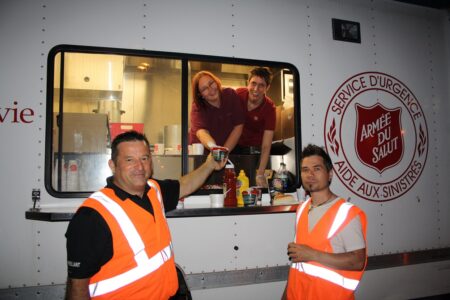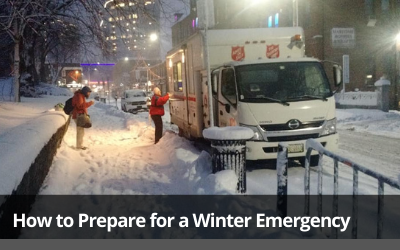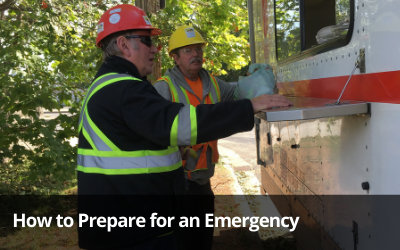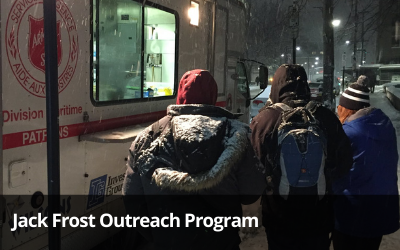While each disaster creates its own unique circumstances and special needs, there are several basic services The Salvation Army offers on most major disasters. These services form the core of The Salvation Army’s disaster services program and are not limited to those listed below. They may be modified depending on the magnitude of the disaster and the disaster victims’ needs.
Food Services
Often, the most visible Salvation Army disaster service is the hot meals and drinks served to disaster victims and emergency workers. This food may be prepared and served at congregate feeding sites, such as a corps building, camp, or shelter, or from one of the Army’s mobile canteens, which are essentially kitchens on wheels.
Emergency Assistance and Disaster Case Management
The Salvation Army provides direct financial assistance to disaster victims through a system of trained caseworkers. In the early phases of a disaster event, emergency financial assistance is focused on a disaster victim’s essential needs: food, clothing, shelter, and medical. Assistance may be provided through vouchers, cheques, or debit/gift cards. Once immediate needs have been met, The Salvation Army transitions its financial assistance program into long-term recovery assistance. Disaster victims who need additional support meet with case managers to develop a permanent recovery plan. The Salvation Army also provides additional recovery assistance by participating in community-based “unmet needs committees.”
Emotionnal and Spiritual Care
The Salvation Army provides spiritual comfort and emotional support to disaster victims and emergency workers coping with the stress of a disaster. This support may include comforting the injured and bereaved, conducting memorial services, and providing chaplaincy services.
Volunteers Management
The Salvation Army has developed a National Disaster Training Program (NDTP), a very detailed emergency response training program whereby volunteers are trained in every aspect of Salvation Army emergency response. Only pre-trained, pre-registered volunteers are called upon during an emergency or disaster response.
Donation Management
The Salvation Army is one of the nation’s leading in collecting, sorting, and distributing donated goods. During a disaster, the Army may open warehouses to receive and sort donations and establish distribution centers to dispense these goods directly to disaster victims.
Clean Up and Reconstruction
The Salvation Army supports people cleaning up and rebuilding after a disaster by distributing cleanup supplies. These supplies can include items such as mops, brooms, buckets, shovels, detergents, and tarps. During catastrophic events, The Salvation Army may also coordinate volunteer rebuilding teams and warehouses to distribute reconstruction supplies such as lumber and sheetrock.





